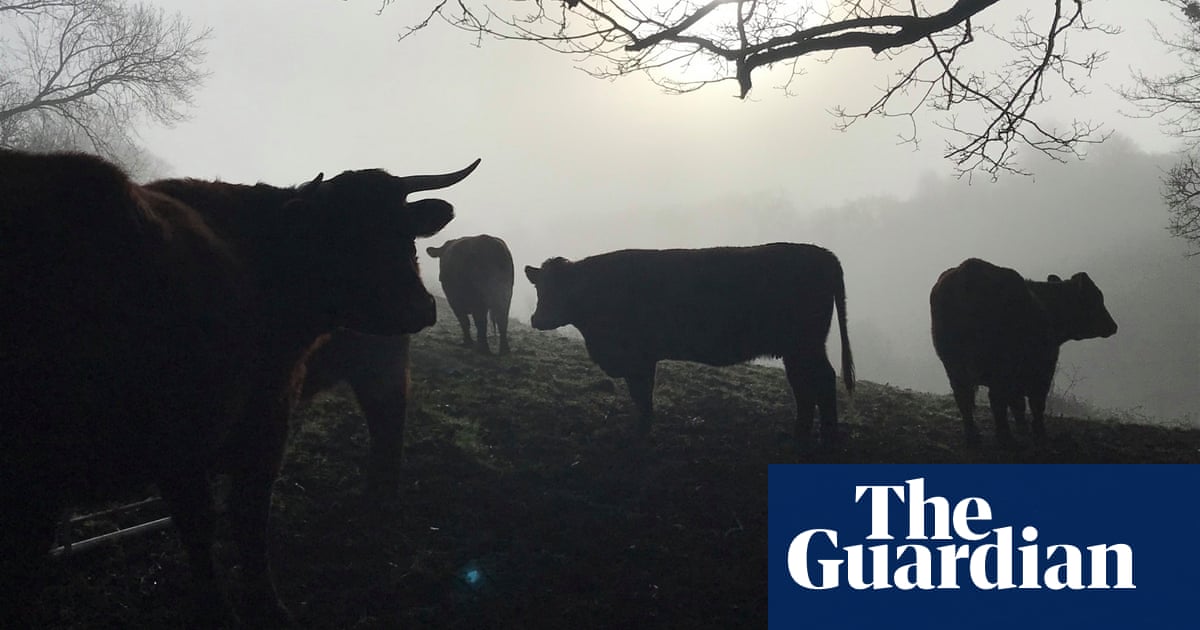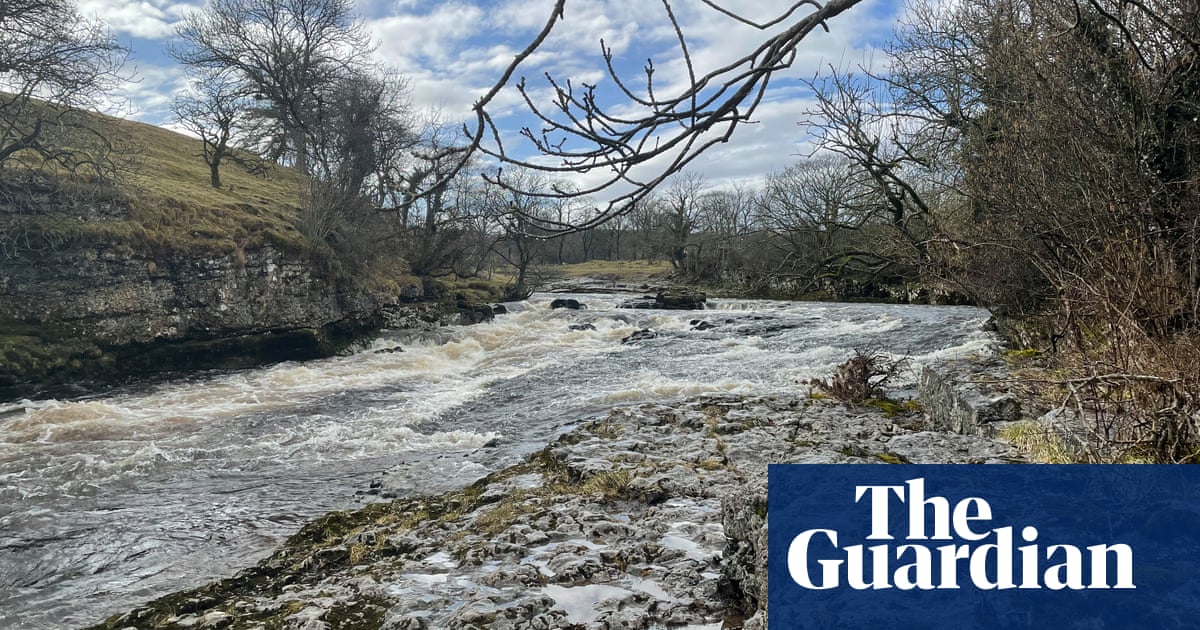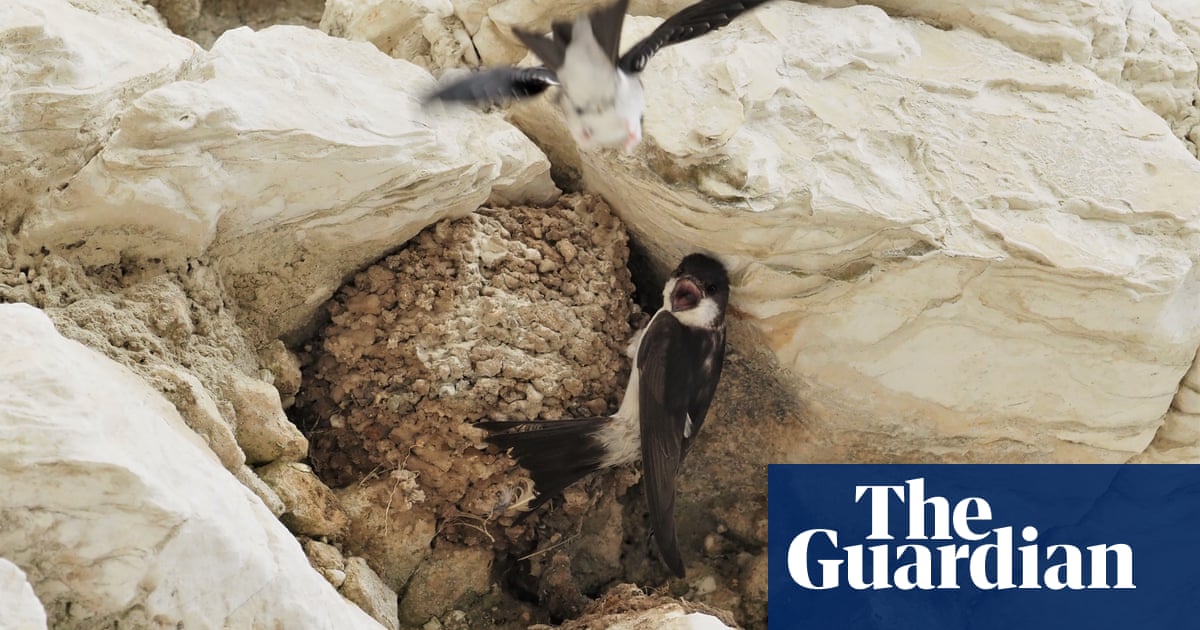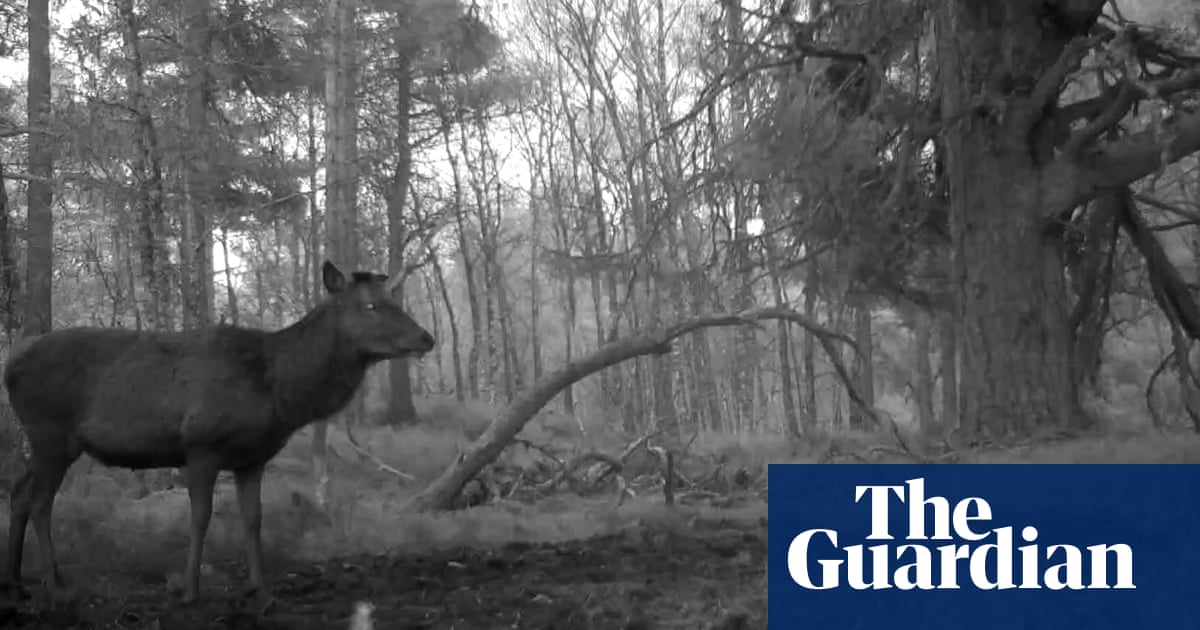
Abutterfly hoists the tattered flag of itself into sunlight at the flower’s tip. The mirror-ball eyes on that wonderful prow of its face can still see, the antennae still read the chemical languages of the air, the proboscis taps into sweet spots inside these Rodgersia flowers, but the wings are knackered.
The flashing blue eye-spots on its wings, from which the peacock butterfly gets its name, are smudged thin. Their dead-leaf-mimicking undersides are threadbare. What once opened to startle predators or closed to provide camouflage no longer works; Aglais io is all out of defensive strategies now. Frayed and torn it might be, but this butterfly is making the most of flaming June, and its defiant moment in the sun is the culmination of an itinerant life, despite our attempts to wipe insects out.
The same cannot be said for patient 1905. The blackbird was almost alive when we found it. It’s twitching claw, panting chest, slightly opening and closing beak were the only signs that it might survive a cat attack. Its eye opened a couple of times and we took it to Cuan Animal Rescue, but it didn’t make it. Sometimes the world feels so old, so damaged by us, that the survival of any life is miraculous.
And then another miracle happens. The drone of collective devotion hums above as a swarm of honeybees cluster like a cloud of living smoke around next door’s chimney. Every few years, a swarm of bees leaves Wenlock Abbey to follow a queen. Every time, they make for the same chimney on the same roof next to ours. The chimney is blocked now, but they used to nest in it and nothing will dissuade them from trying each time. How do they know to go to the same place? How is this memory passed on through generations of bees?
Meanwhile, we are packing up too. It’s time for us to move and follow some mysterious lines of instinct and memory ourselves; the next diary will come from further west in Shropshire. I will tell the bees and the trees that it’s been a wonderful privilege to live on Wenlock Edge.












